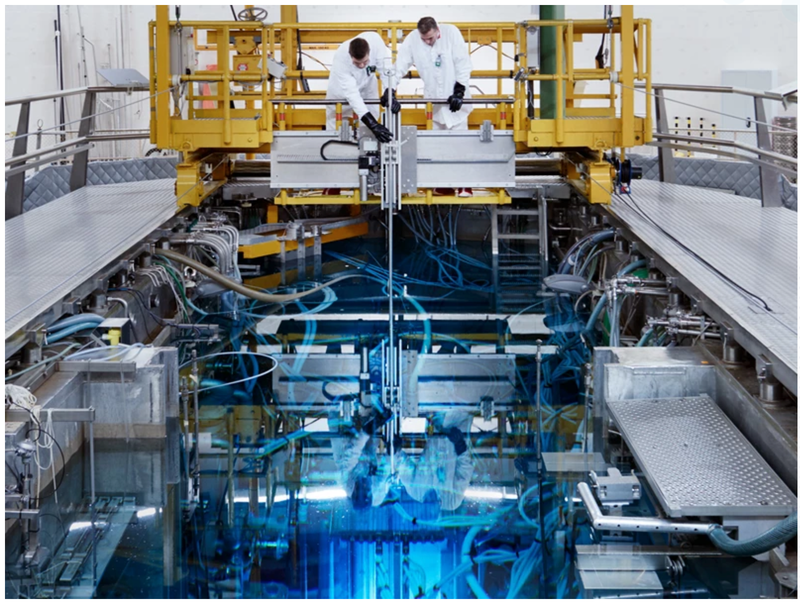Dutch Isotope Reactor Back in Full Operation
 The High Flux Reactor in Petten, the Netherland, has restarted and a capacity of 45 MW has been met, according to operator NRG. It is one of the few reactors in the world that can make medical isotopes. In the coming month, NRG says more than 1.1 million patient doses will be produced, which will be used for the diagnosis and treatment of life-threatening diseases such as cancer and cardiovascular disease.
The High Flux Reactor in Petten, the Netherland, has restarted and a capacity of 45 MW has been met, according to operator NRG. It is one of the few reactors in the world that can make medical isotopes. In the coming month, NRG says more than 1.1 million patient doses will be produced, which will be used for the diagnosis and treatment of life-threatening diseases such as cancer and cardiovascular disease.
“Within two weeks, the first medical isotopes for nuclear medicine will be delivered to hospitals,” said Vinod Ramnandanlal, Director of Commerce, NRG|PALLAS. “We are pleased that NRG can once again meet the worldwide demand for medical isotopes.”
“This is very good news, medical isotopes are of enormous importance to many patients,” said Andor Glaudemans, chairman of the Dutch Association for Nuclear Medicine (NVNG).
The HFR was not started up on January 20, 2022 due to a leak in a water pipe for test facilities on the outside of the reactor core. NRG then started inspections and preparations for a new water supply. For this, NRG had to adapt the installation and submit an application for a license change to the Authority for Nuclear Safety and Radiation Protection (ANVS). The ANVS granted this change permit on March 9. In view of the patient's interest, the ANVS has decided to have the permit take effect immediately.
Last year the High Flux Reactor celebrated its 60th anniversary . The reactor was commissioned in 1961 to develop nuclear technology for energy supply. Since the 1980s, the reactor has been increasingly used for the production of medical isotopes, especially for diagnostic use. Today, more than 30,000 patients a day are treated with medical isotopes from the High Flux Reactor. This number is increasing mainly due to innovations in therapeutic nuclear drugs for the treatment of various cancers.